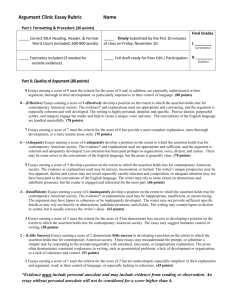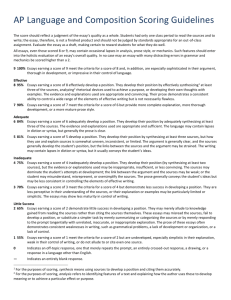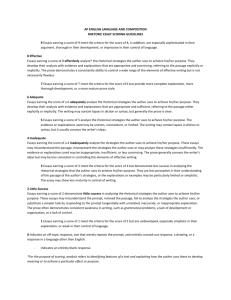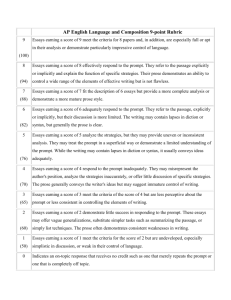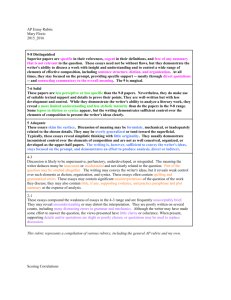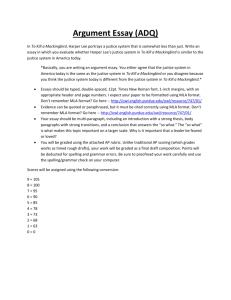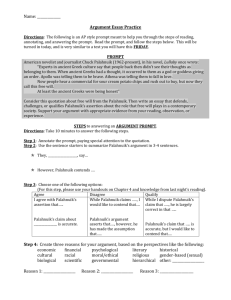Q1 EA1 Scoring Rubric
advertisement
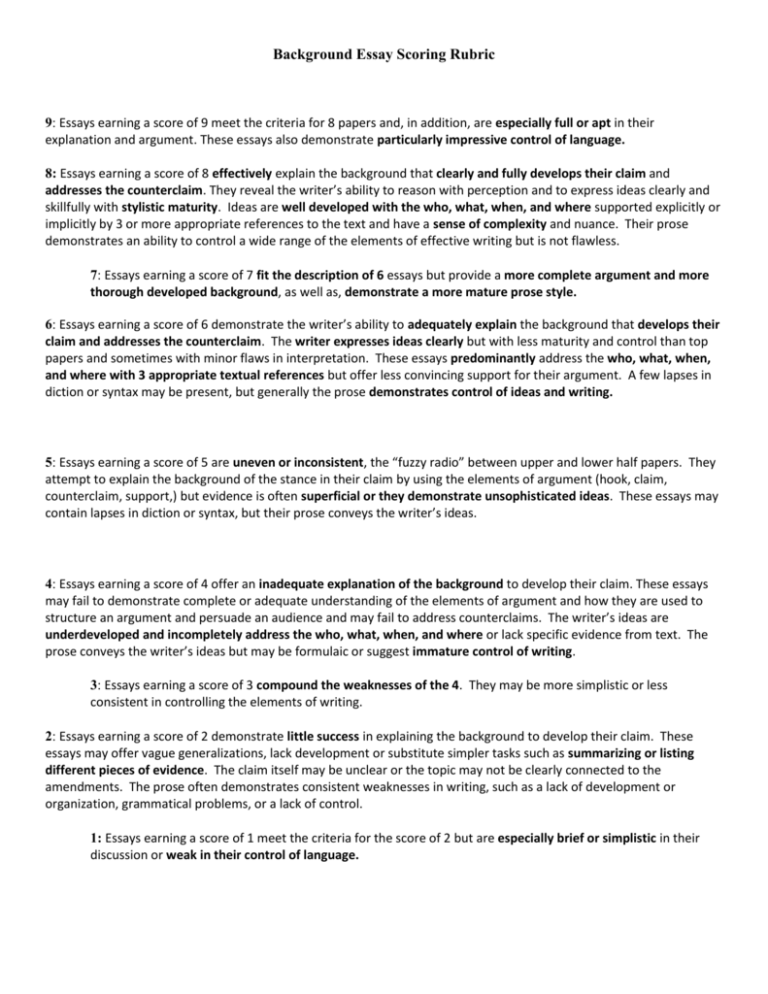
Background Essay Scoring Rubric 9: Essays earning a score of 9 meet the criteria for 8 papers and, in addition, are especially full or apt in their explanation and argument. These essays also demonstrate particularly impressive control of language. 8: Essays earning a score of 8 effectively explain the background that clearly and fully develops their claim and addresses the counterclaim. They reveal the writer’s ability to reason with perception and to express ideas clearly and skillfully with stylistic maturity. Ideas are well developed with the who, what, when, and where supported explicitly or implicitly by 3 or more appropriate references to the text and have a sense of complexity and nuance. Their prose demonstrates an ability to control a wide range of the elements of effective writing but is not flawless. 7: Essays earning a score of 7 fit the description of 6 essays but provide a more complete argument and more thorough developed background, as well as, demonstrate a more mature prose style. 6: Essays earning a score of 6 demonstrate the writer’s ability to adequately explain the background that develops their claim and addresses the counterclaim. The writer expresses ideas clearly but with less maturity and control than top papers and sometimes with minor flaws in interpretation. These essays predominantly address the who, what, when, and where with 3 appropriate textual references but offer less convincing support for their argument. A few lapses in diction or syntax may be present, but generally the prose demonstrates control of ideas and writing. 5: Essays earning a score of 5 are uneven or inconsistent, the “fuzzy radio” between upper and lower half papers. They attempt to explain the background of the stance in their claim by using the elements of argument (hook, claim, counterclaim, support,) but evidence is often superficial or they demonstrate unsophisticated ideas. These essays may contain lapses in diction or syntax, but their prose conveys the writer’s ideas. 4: Essays earning a score of 4 offer an inadequate explanation of the background to develop their claim. These essays may fail to demonstrate complete or adequate understanding of the elements of argument and how they are used to structure an argument and persuade an audience and may fail to address counterclaims. The writer’s ideas are underdeveloped and incompletely address the who, what, when, and where or lack specific evidence from text. The prose conveys the writer’s ideas but may be formulaic or suggest immature control of writing. 3: Essays earning a score of 3 compound the weaknesses of the 4. They may be more simplistic or less consistent in controlling the elements of writing. 2: Essays earning a score of 2 demonstrate little success in explaining the background to develop their claim. These essays may offer vague generalizations, lack development or substitute simpler tasks such as summarizing or listing different pieces of evidence. The claim itself may be unclear or the topic may not be clearly connected to the amendments. The prose often demonstrates consistent weaknesses in writing, such as a lack of development or organization, grammatical problems, or a lack of control. 1: Essays earning a score of 1 meet the criteria for the score of 2 but are especially brief or simplistic in their discussion or weak in their control of language.



